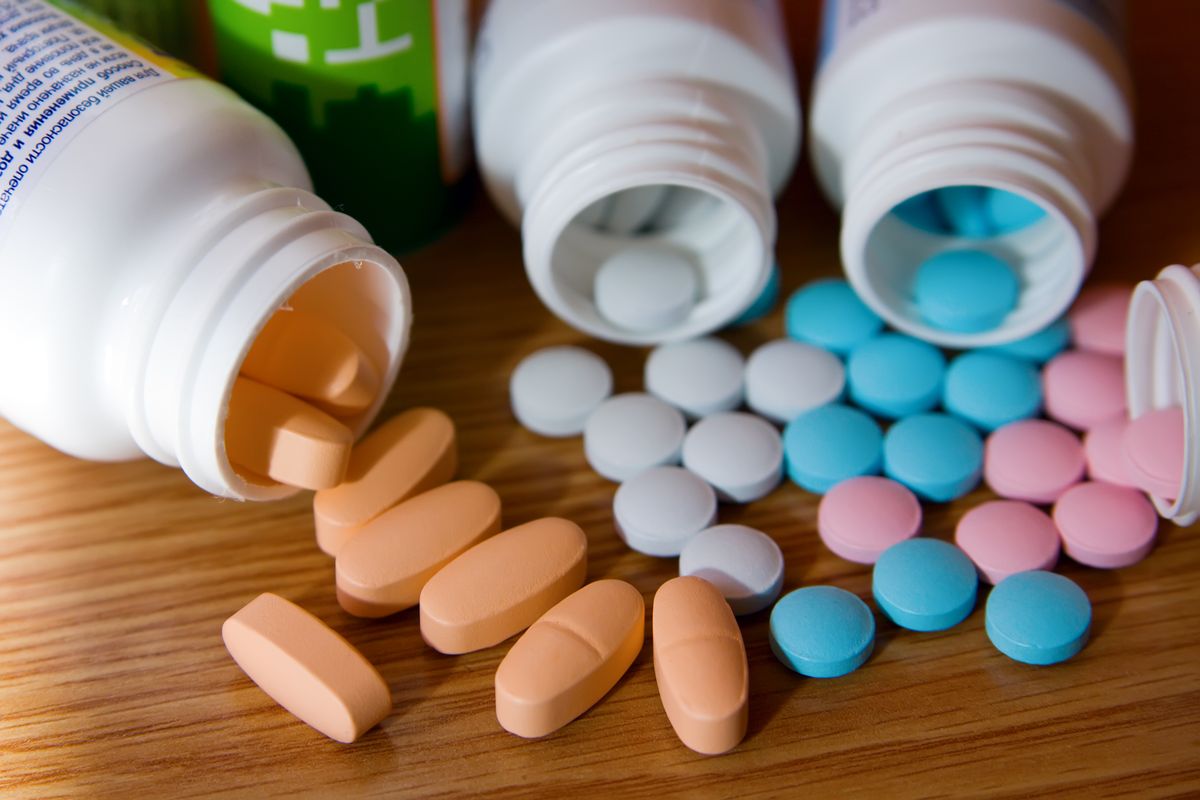Have you ever wondered what modern therapies can help you improve your health? Drug programmes, also known as drug therapies, are an area of medicine that can make a significant difference to your quality of life. Find out how these innovative therapy approaches work and how you can use them to enjoy better health.
Drug programmes - what are they?
Drug programmes, also known as drug therapies, are advanced treatment strategies based on specially tailored medicines or combinations of medicines to improve patients' health. It is an innovative approach to therapy that takes into account a variety of factors, such as individual needs, disease type and unique patient characteristics. This makes drug programmes a key part of the treatment of a wide variety of conditions.
These therapies are not limited to controlling the symptoms of the disease. Their main aim is to influence the causes of the condition and prevent its recurrence. Drug programmes are effective in the treatment of chronic diseases, chronic pain, as well as in the treatment of heart disease, diabetes and cancer.
The variety of drug programmes available allows for a personalised approach to the patient. Treatment is tailored to each person's unique needs and requirements, making it effective and accessible to different age groups and patients with different types of disease.
How do they work?
Drug programmes work on the basis of a comprehensive therapeutic process that involves several key steps.
The first stage is an accurate diagnosis of the disease and an assessment of the patient's condition. On the basis of this data, a personalised treatment plan is created, tailored to individual needs and therapeutic caes. Drug programmes use state-of-the-art medicines that are precisely matched to the patient's type of disease. These drugs act on the causes and symptoms of the disease, which contributes to better therapeutic outcomes.
In addition to pharmacotherapy, drug programmes often include supportive therapies such as physiotherapy, psychotherapy or behavioural therapies. These therapies help patients to manage their symptoms and improve their quality of life.
Monitoring patient progress is a key element of drug programmes. Regular medical check-ups, laboratory tests and symptom assessments allow the effectiveness of therapy to be assessed on an ongoing basis and adjusted if necessary.
Patient education also plays an important role. Patients learn about their disease, its mechanisms and how to cope with it. This helps to improve understanding of the treatment process and increases patient engagement.
Who can benefit?
Drug programmes provide an accessible and comprehensive treatment solution that is tailored to the diverse needs of patients. They are designed for a broad spectrum of people, regardless of age or type of condition.
People with chronic diseases such as diabetes, asthma or hypertension will find personalised therapies in drug programmes that help control symptoms and minimise the risk of complications.
However, drug programmes are not only limited to chronic diseases. They are also available for patients aiming to combat serious ailments such as cancer or heart disease.
It is worth emphasising that drug programmes take into account the individual differences of each patient. Regardless of age, gender or health status, there is a good chance that there is a suitable drug programme that can help improve health and quality of life.
Ultimately, drug programmes are available to anyone who needs personalised and effective medical care. If you have a condition or need more personalised treatment, it is worth consulting your doctor to find out if a drug programme is the right option for you. Regardless of your type of illness, age or living situation, drug programmes can be an important step towards improving your health and quality of life.
To benefit from drug programmes, there are several key steps:
- Consultation with a specialist: The first and most important step is to consult a specialist. It is the doctor who will assess your condition, understand the nature of your illness and determine whether a drug programme is the right treatment option for your case. The doctor will also be responsible for creating a personalised therapeutic plan.
- Active participation: If you are accepted into a drug programme, active participation is required. This includes following your doctor's instructions, attending regularly scheduled check-ups and performing recommended diagnostic tests. It is important to be involved in the treatment process.
- Adherence to therapeutic recommendations: Drug programmes often require adherence to specific therapeutic recommendations, such as taking medication regularly as scheduled, following a diet, exercising or participating in psychological therapy. Adherence to these recommendations is crucial to achieving the desired therapeutic outcome.
Nevertheless, not all patients will be suitable candidates for drug programmes. Individuals who do not adhere to medical advice, do not attend regular check-ups or do not meet the access criteria for a particular programme may not qualify to participate. The availability of drug programmes may depend on the individual circumstances and criteria of the programme in question. It is therefore important to consult your doctor to assess the availability and suitability of a drug programme in your case.

